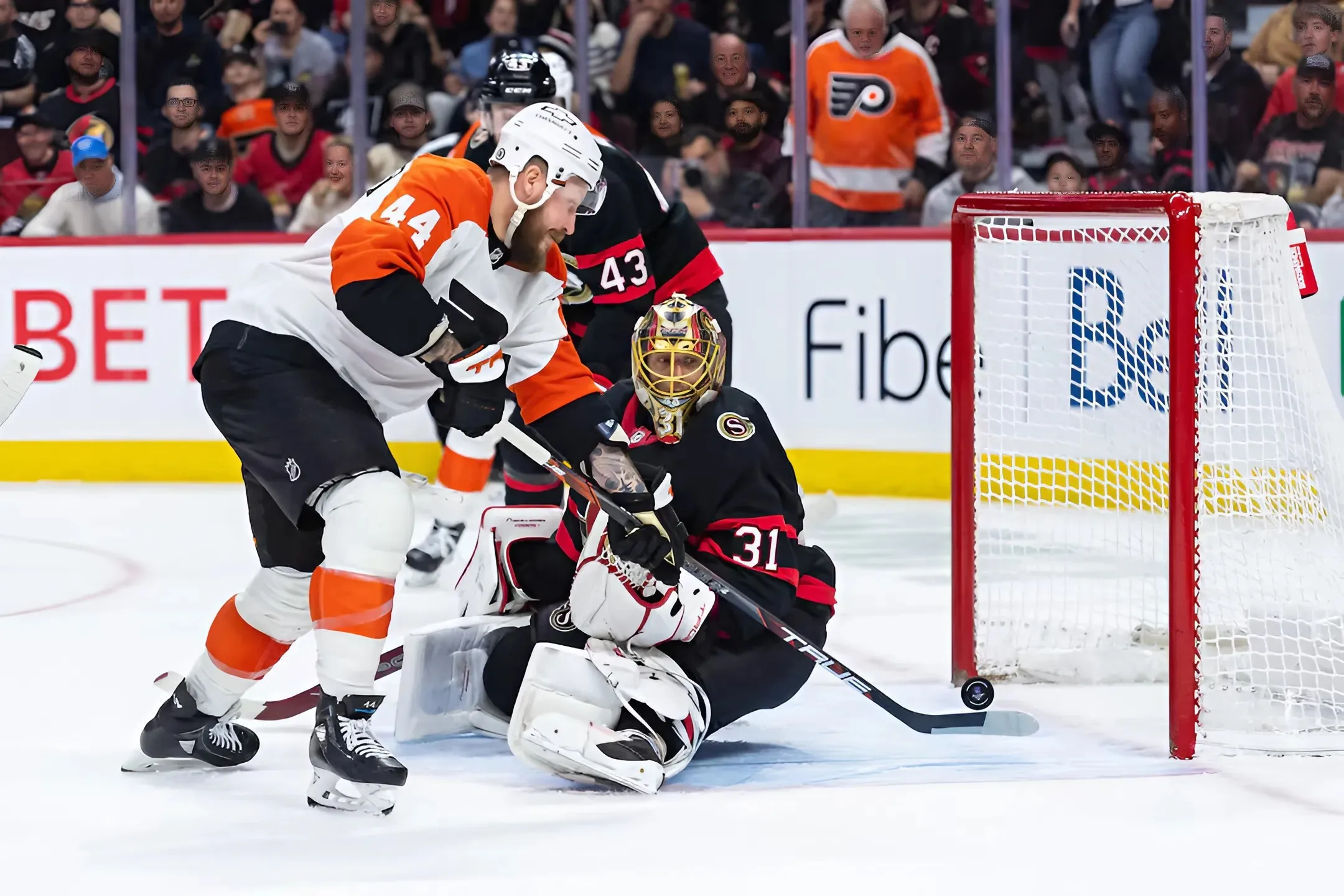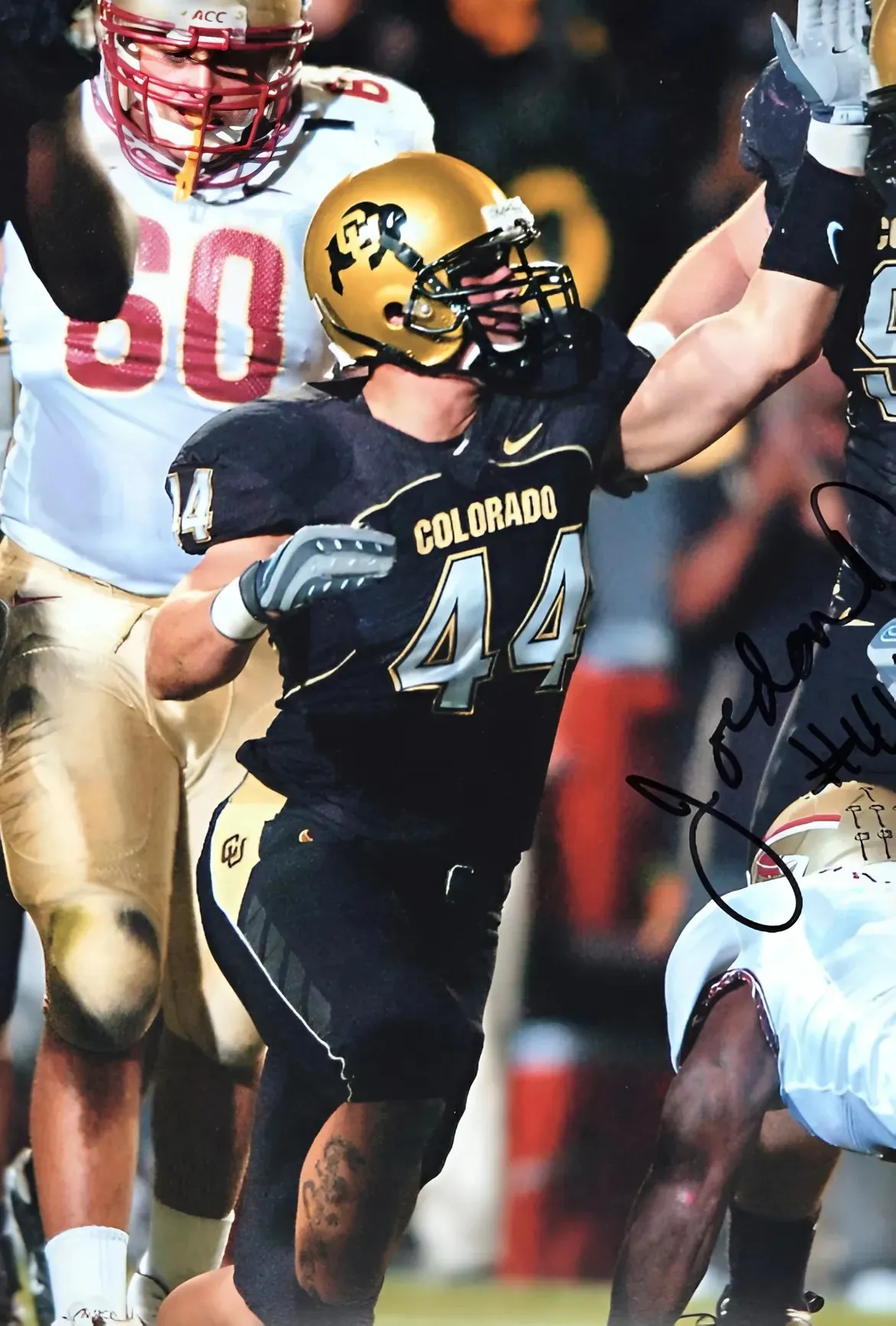
The rebuilding Philadelphia Flyers ended one of their worst campaigns in franchise history, finishing 29th in the 2024-25 league standings and last in the Eastern Conference. Though it maybe wasn’t the outcome fans wanted, rookie Matvei Michkov sure kept things exciting.
The Russian winger had 26 goals and 37 assists for 63 points in 80 games, averaging 16:41 of ice time. But let’s take a deeper dive. A much deeper dive. Below are ten of the most impressive stats from his debut season in the NHL.
Stat One: Points Per 60 Minutes Among Flyers
Throughout much of the season, Michkov was productive but didn’t get the ice time to show for it. To make up for this, we can look at his points scored per 60 minutes. With a rate of 2.83 points per hour of usage, that was the best mark among Flyers regulars all season long—edging out Travis Konecny (2.70), and finishing well ahead of Owen Tippett‘s third-place total (2.10).
The only rookies this season to lead their teams in points per 60 minutes in 2024-25 were Michkov and Macklin Celebrini, the 2024 first-overall pick. However, Michkov stands out for accomplishing the feat on a team with Konecny, a two-time All-Star and Team Canada representative in the 4 Nations Face-Off.
Stat Two: Michkov Reigns Supreme Among 2023 Draft Class
Entering the 2023 NHL Draft, some saw Michkov as the only player who could feasibly rival Connor Bedard, who many felt was a generational prospect. Unusual circumstances had the Russian phenom fall into the lap of the Flyers at seventh overall, though, who were glad to make the pick.
Revisiting that 2023 class, here are the leaders in points per 60 minutes from this season, among those with 250 minutes played: Michkov (2.83), Bedard (2.42), Will Smith (2.30), Adam Fantilli (2.26), Leo Carlsson (2.14), and Zach Benson (1.51).
In case you needed a refresher, Bedard, Carlsson, Fantilli, and Smith were the first four picks off the board in that class. Michkov was seventh.
Stat Three: Goals, Primary Assists Among Teenage Rookies
Michkov finished the season with 26 goals and 21 primary assists. Since 2007-08, the 25-goal mark has only been reached by six teenage rookies (in other words, no more than two years removed from draft eligibility). Only three of them have had at least 20 primary assists to boot.
Those players are: Auston Matthews (2016-17), Elias Pettersson (2018-19), and Michkov (2024-25). It’s worth noting that Matthews and Pettersson each have 100-point seasons to their name, but what’s just as fascinating is how small this list is.
Stat Four: Points Among Teenage Rookies
As mentioned, Michkov finished the season with 63 points. The only teenage rookies to either match or beat that total since 2007-08 are the following: Patrick Kane (2007-08), Matthews (2016-17), Nicklas Bäckström (2007-08), Pettersson (2018-19), Clayton Keller (2017-18), Patrik Laine (2016-17), Jeff Skinner (2010-11), Celebrini (2024-25), and Nathan MacKinnon (2013-14).
These youngsters did exceptionally well in Calder Trophy voting, as you might imagine. Out of the eight players whose award status isn’t pending, five of them won the Calder Trophy and all of them were finalists. Going up against a historically stacked rookie class with Lane Hutson, Dustin Wolf, and Celebrini, it’s possible that Michkov becomes the only player here without even a finalist bid for the honor.
Stat Five: Points Per 60 Minutes Already Among the Flyers’ Greats
Putting Michkov’s points per 60 scoring in perspective, let’s compare him to some all-time Flyers, looking at QuantHockey’s data. Since 1999-00, here are the five best members of the Orange and Black in the stat, with at least 80 games played: Peter Forsberg (3.76), Michkov (2.83), Tony Amonte (2.82), Jakub Voráček (2.77), and Claude Giroux (2.75).
It’s a higher-scoring era than it used to be, so Voráček and Giroux kind of get the short end of the stick here. Regardless, that’s quite the list for a rookie, who’s poised to get better.
Stat Six: 5-on-5 Scoring (Part One)
The Flyers’ power play has been a major weakness for a while, and that didn’t change this season—they converted at just 14.5% efficiency, the third-worst mark in the NHL. Evidently, Michkov’s point totals were hampered due to that fact.
If we look at 5-on-5 scoring, Michkov produced. Among the 431 forwards who played at least 250 minutes, his 2.34 points per 60 minutes at 5-on-5 ranked 34th. That was ahead of a plethora of star-caliber players, such as Keller, Brayden Point, Matthew Tkachuk, and others.
Stat Seven: 5-on-5 Scoring (Part Two)
While his full-season marks were terrific, Michkov soared up the rankings starting on Dec. 1. From that point until the end of the season, he was sixth in the NHL with 2.87 points per 60 at 5-on-5, among the 406 forwards with 250 minutes played.
To give you an idea of how good that is, he joined the following forwards as the only ones with over 2.75 points per 60 in that span: David Pastrňák, Jason Robertson, Robert Thomas, Sean Monahan, Nikita Kucherov, Leon Draisaitl, and Sidney Crosby. That’s some great company.
Stat Eight: 5-on-5 Scoring (Part Three)
Let’s go even further. Michkov was scorching-hot from Feb. 1 onward, due to his increased usage. Instead of looking at per-60 stats and focusing now on just points, the 20-year-old Russian ranked third in 5-on-5 points from February through the end of the season, with 25 in 29 contests.
Only Pastrňák and Thomas came ahead, while the 2024-25 Art Ross Trophy-winning Kucherov ended up just shy with 24. Mind you, he needed over 55 more minutes of ice time than Michkov to come that close. In fact, Michkov was the only player in the top ten who didn’t reach the 415-minute played mark.
Stat Nine: Expected Goals Per 60 Minutes Among Teenage Forwards
Expected goals generated per 60 minutes measure a skater’s ability to drive play. Among the 184 teenage forward seasons with 250 minutes at 5-on-5 (meaning, players like Bedard are included twice due to having multiple teenage seasons), Michkov’s 3.09 expected goals per 60 at five-a-side hockey were sixth.
Andrei Svechnikov (twice), Seth Jarvis, and Connor McDavid (twice) represent the top five. Svechnikov and Jarvis play in the Carolina Hurricanes’ expected goal-friendly system, adding to Michkov’s eye-opening season.
Stat Ten: Individual Expected Goals Per 60 Minutes
Individual expected goals per 60 minutes look at how many quality scoring chances a player is firing on the net, as opposed to regular expected goals, which track the player’s entire line (it’s an on-ice metric). With a rate of 1.28, Michkov finished the season ranked 35th among forwards with 250 minutes of ice time, right behind Draisaitl, Crosby, and Pastrňák.
On top of being an excellent playmaker, Michkov can shoot the puck. The expectation for the rest of his career can be for the Flyers’ offense to run through him. To that point, it already has.
Michkov had big expectations in 2024-25, and he lived up to all of them. He faced some serious obstacles along the way, too. The future is bright—maybe even best-player-in-the-world bright.



